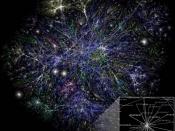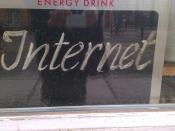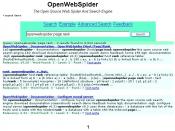In the article, The age of clutter: Conducting effective research using the Internet, by Charles J Fornaciari and Maria F Loffredo Roca (pg. 732), an argument is made in the case of students becoming overloaded with information. There is a perception that the more information you have the better decisions you will make. This article explains the problems and proposes effective strategies for students to gather information from the Internet.
On the surface you would believe that the more information you have about a decision you need to make the better. But as stated in the article, information without synthesis and analysis is merely clutter that may contribute to very poor decision making. Technology can also lead to confusion when searching the Internet because knowledge of the proper use of Internet-based filter tools has a large impact on the quality of information. Boolean logic is a standardized concept language but different implementations on different search engines add to the confusion when trying to research a subject.
Also the authors believe you are overwhelmed with irrelevant information using any search engine, but the most relevant hit always show up first. You may have to look through two or three pages of hits, but you are only talking about 30 links. I never look past the third page on any search engine.
I believe the authors are assuming that the majority of people can not distinguish between relevant information and garbage. One of the questions asked, was how do students decide on which links to follow. If it only take you thirty seconds to determine if the link might be useful, then going through twenty or thirty links do not take too much of your time. Questioning source creditability is the main issue here, not the about of information we have access...


